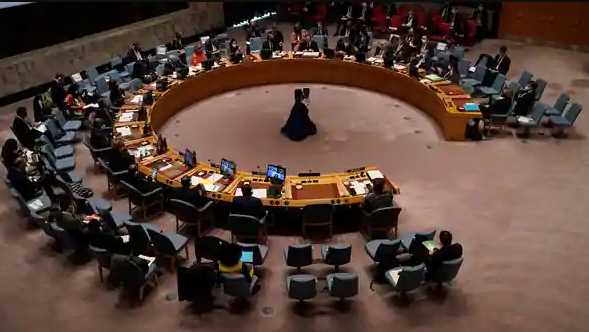The United Nations Security Council (UNSC) is the main organ of the United Nations that is responsible for the maintenance of international peace and security. The Security Council has 15 members, 5 of which are permanent members with veto power, and 10 of which are non-permanent members that are elected for two-year terms by the General Assembly.
The permanent members of the Security Council are China, France, Russia, the United Kingdom, and the United States. The non-permanent members of the Security Council are Belgium, Cote d'Ivoire, Equatorial Guinea, Ethiopia, Kazakhstan, Kuwait, the Netherlands, Peru, Poland, and Sweden.
India is not currently a member of the Security Council, but it has been a non-permanent member in the past and is currently seeking to become a permanent member. India has been a member of the United Nations since 1945 and is the world's second-most populous country with over 1.3 billion people. India is also the largest democracy in the world and has a strong economy, making it a strong candidate for permanent membership on the Security Council.
There are a few hurdles that India must overcome in order to become a permanent member of the Security Council. First, India must be elected by the General Assembly. This is no easy task as there are currently 192 member countries in the United Nations and India would need to receive the support of two-thirds of them. Second, India must also receive the support of the permanent members of the Security Council. This is also no easy task as each of the permanent members has veto power and can block India's membership.
What are the main reasons why India has not been successful in its bid to become a permanent member of the UNSC?
The main reasons why India has not been successful in its bid to become a permanent member of the UNSC are as follows: The UNSC is made up of the five permanent members who each have veto power. This makes it very difficult for any proposal to be passed by the UNSC. India has not been able to get the support of the other UNSC members for its bid to become a permanent member.
What are India's chances of becoming a permanent member of the UNSC in the future?
India's chances of becoming a permanent member of the UNSC in the future are slim, but not impossible. India would need to get the support of the other UNSC members for its bid to become a permanent member. However, given the veto power of the permanent members, this is unlikely to happen.

Mr. Jaishankar stated that there is broad global agreement on the need to reform the Council, particularly because it does not reflect global realities, and that an expanded Council not only is it beneficial to India, but it is also beneficial to other underrepresented areas.
'India has a strong case to be a permanent member of the Security Council as the world's largest democracy, fifth largest economy, nuclear power, technological hub, and tradition of global engagement.' 'The Council must adapt to changing global conditions not only to achieve its goals of maintaining international security, but also to remain relevant,' he told the Saudi Gazette in an interview.